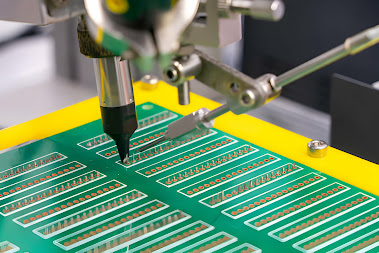The Impact of Advanced Technologies on PCB Prototype Manufacturing
Integrating advanced technologies has significantly transformed PCB prototype manufacturing, catering to the increasing demand for efficient and reliable prototypes in complex, smart devices. Automation plays a crucial role by enhancing speed and precision, as automated systems manage design to assembly, reducing manual labor and human error. Automated optical inspection (AOI) systems ensure meticulous defect detection, while continuous operation of automated machines shortens production cycles. 3D printing technology introduces exceptional customization and flexibility, creating intricate and multi-layered PCBs that traditional methods cannot achieve. This allows engineers to experiment with various designs and materials cost-effectively, fostering innovation and rapid prototyping.
Advanced materials further boost PCB performance and reliability. High-frequency laminates enhance signal transmission and thermal management, while flexible PCBs, made from materials like polyimide, are ideal for compact and irregular spaces in wearable electronics. To know more, Red this blog


Comments
Post a Comment